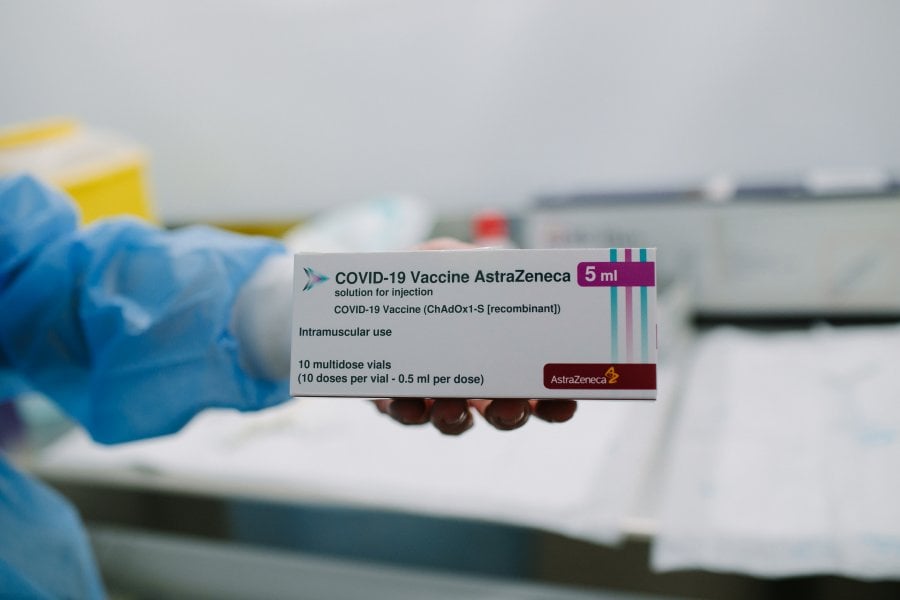Oxford/AstraZeneca vaccine - expert reaction
8 April 2021 London School of Hygiene & Tropical Medicine London School of Hygiene & Tropical Medicine https://lshtm.ac.uk/themes/custom/lshtm/images/lshtm-logo-black.png
COVID-19 Vaccine Oxford/AstraZeneca. Credit: Flickr/gencat cat
On Wednesday 7 April 2021, The UK's Medicines and Healthcare products Regulatory Agency (MHRA) and the European Medicines Agency (EMA) announced the findings of their reviews into the potential link between blood clots and the University of Oxford/AstraZeneca COVID-19 vaccine.
Ian Douglas, Professor of Pharmacoepidemiology, London School of Hygiene & Tropical Medicine, said:
“The messages from both MHRA and EMA are in close agreement, which is reassuring. It’s also impressive to see the vaccine safety monitoring systems throughout Europe operating at such speed, with great rigour and transparency.
"The evidence from the case reports seems to be compelling enough to conclude at least a possible causal link between the AZ vaccine and rare clots accompanied by low platelet counts. Though I note the caution expressed here; it is still not proven beyond doubt.
"Two things do stand out beyond doubt. Firstly the well quantified and large benefits provided by all the currently available vaccines, and secondly that any risk from clotting appears to be very rare.
"The balance of risks and benefits shown by Prof Jonathan Van Tam for different age groups and in different levels of circulating virus helped demonstrate this to some degree, but we need to remember the risks from COVID are of course greater than admission to intensive care alone. Many people suffering consequences of COVID-19 such as clots and other long term problems won’t have been in intensive care but these are of course real and harmful side effects of COVID-19 which need to be included in our assessment of the risks and benefits of vaccines."
“The move to recommend Pfizer or Moderna vaccines for under 30’s in the UK is a very cautious approach and makes some sense. Though we need to remember this doesn’t mean other vaccines are not also associated with rare clots, just that we have less evidence and experience with them at the moment.
“The reality of the incredible COVID vaccine role out speed and volume means we will continue to find out more about these rare clots and we may well see new safety signals with any of the vaccines. This is the nature of all effective medications; their rarer side effects only emerge when we use them at large scale.”
Martin Hibberd, Professor of Emerging Infectious Disease, London School of Hygiene & Tropical Medicine (LSHTM), said:
“I think the government has made a sensible choice in offering alternatives to people under 30, given the data. However, I would like to see the evidence that the other vaccines are safer. If they are, I would be tempted to increase the age where they can be recommended, to reduce people’s vaccine hesitancy. This should be possible in the UK, where two alternatives are already available.
“Also, I think the question on children is important. The AstraZeneca trials in children have been stopped, while Pfizer continue – this should be based on evidence that the data in the 18–30-year-olds looks different between AstraZeneca and Pfizer – which may need to come from countries outside of the UK, as relatively few people of this age have been vaccinated within the UK.
“Fully opening-up society is best done when more than 85% of the population are vaccinated, to gain from both reduced transmission as well as reduced disease. To achieve this, all age groups should benefit from the vaccines.”
If you enjoyed this article and would like to build a career in global health, we offer a range of MSc programmes covering health and data, infectious and tropical diseases, population health, and public health and policy.
Available on campus or online, including flexible study that works around your work and home life, be part of a global community at the UK's no.1 public health university.